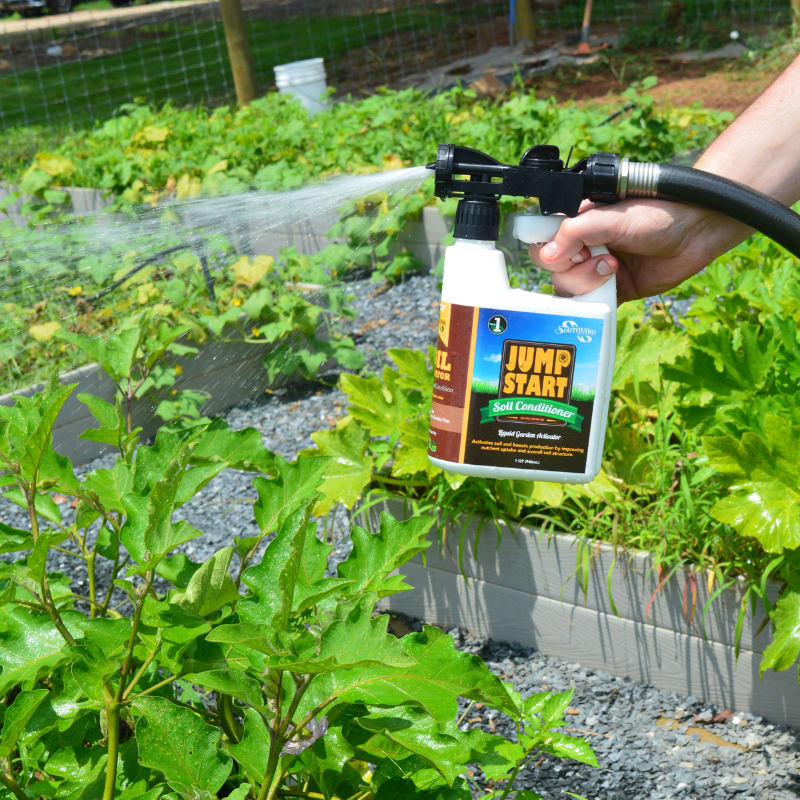In today's “fast green” world, we see an overabundance of fertilizers and a heavy focus on the chemical inputs, including inorganic soil conditioners. However, we often ignore the other two categories of soil amendments. At Southland Organics, we produce organic soil amendments and distinctly divide them into three categories: fertilizers, soil inoculants and soil conditioners.
Fertilizers
Be it organic or synthetic, a fertilizer is a soil amendment that provides added plant nutrients. The primary nutrients that fertilizers add are nitrogen, phosphorus and potassium. These are also called macro-nutrients. There are 72 trace elements, or "micro-nutrients," that fertilizers can add as well to create a healthy, fertile soil. Fertilizers help with plant growth rather than help with the soil's texture.
Soil Inoculants
Soil inoculants are soil amendments that add biology to the soil to improve the soil food web. Often, these soil amendments focus on bacteria or fungi but can also include beneficial nematodes and other biology that play vital roles in the carbon cycle or nitrogen cycle. Soil biology plays a tremendous role in a healthy environment.
Soil Conditioners
What is soil conditioner? Soil conditioners enhance soil structure and are often called soil enhancers. Soil conditioners do improve soil structure, but that is only part of their effect. Soil properties that soil conditioners can impact include the soil's cation exchange capacity, soil pH, water holding capacity and soil compaction.
A Note on Cation Exchange Capacity
Cation exchange capacity is the total negative charge a soil can hold. The most common soil cations are magnesium, potassium, calcium and ammonium. Soils with higher cation exchange capacities are able to exchange more cations with plants, thus providing them with more nutrients.
Classifying Soil Amendments
In classifying a soil amendment, we primarily evaluate the product based on its impact. Does the product provide nutrients? If so, then it is a fertilizer. Does the product deliver biology to the soil? If so, then it is an inoculant. If the product does not provide any nutrients or biology but is deemed as beneficial for plant life, then by default, it is a soil conditioner. Many soil amendments take on aspects of a fertilizer, inoculant or a soil conditioner, but their objective should be clearly defined.
Soil conditioners also add nutrients to the soil, but do not guarantee the value of the macronutrients. In the United States, the difference can often be government registration. Many organic soil conditioners provide great soil conditioning and enhancing properties, such as added water retention and beneficial microorganisms, but provide small fertilizer requirements. These organic materials provide excellent value to plant roots and improve clay soils.
Inorganic soil conditioners and organic soil conditioners repair damaged soil and help maintain the soil quality for plant life. Over time, the soil will become compacted and have less air space for roots to function.
Soil conditioners help loosen compacted soils as well as replenish and maintain nutrients for the plants to flourish. For best results, it is essential to mix the soil and the soil conditioner before planting. However, some soil conditioners do work better when placed on top of the soil after planting the crop.
Organic Soil Conditioners

Soil conditioner may consist of organic matters from many sources, including organic compost. These would be the plant and animal remains that are in various stages of decomposition, typically referred to as compost. When compost is added to the existing soil, it begins decomposing and provides an additional rich food source for the microorganisms in the soil. The microbes eat the plant and animal remains and eventually die, thus adding themselves to the organic composition of the soil.
The end product of this cycle is humus, which is dark brown or black and will not decompose any further. Humus is vital to the soil structure because it readily chelates soil nutrients and dramatically increases the water holding capacity.
Why organic soil conditioners?
By providing organic matter as a soil conditioner, we are helping the plants sustain a healthy life. When the soil becomes depleted of organic matter and water tends to drain, the biology is less prolific. Therefore, the plants have a harder time sustaining life.
Like we mentioned before, the soil’s ability to hold and release various elements and compounds that plants need for nutrition is through a process called cation exchange capacity (CEC). Soil conditioners are used to balance out the cation exchange capacity within the different types of soil. Because there are various types of soil, there are multiple levels of common soil cations within each of these different types.
Soil conditioners will bind together the atoms plants need to grow. They are also able to release different nutrients at the time when plants need them the most. The property of the soil is ultimately changed through the soil conditioner to be the perfect state that plants need to grow.
Soil Conditioners and Soil Structure
Soil conditioners can improve poor soils by adding organic material among soil particles. Soil conditioners improve soil structure through increasing water retention, increasing aeration and adding plant nutrients.
Soil conditioners can break up clay soils and free up nutrients to be more available to plant roots. Overall, soil conditioners improve soil texture in poor soils by adding more living organisms and minerals.
Our Organic Soil Conditioner
At Southland Organics, we manufacture a soil conditioner called Jump Start. This product uses organic acids to break up compacted soils. It frees up nutrients and aerates, increasing crop yields, seed germination and overall plant vitality. If you're interested in using a soil conditioner, check out Jump Start for an all-natural option.






